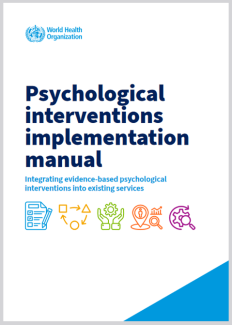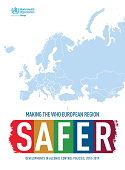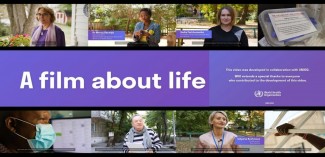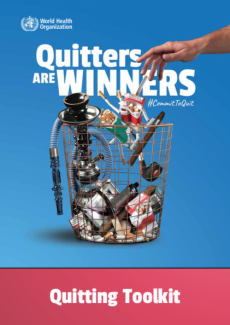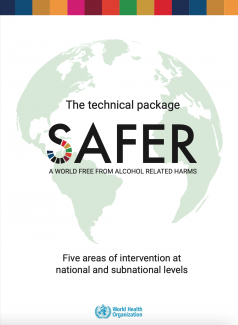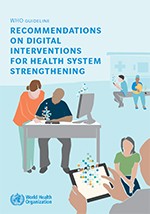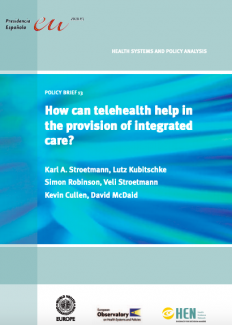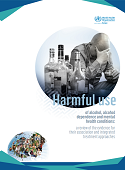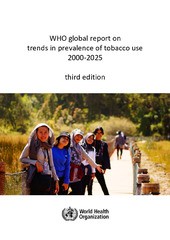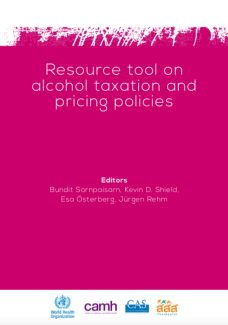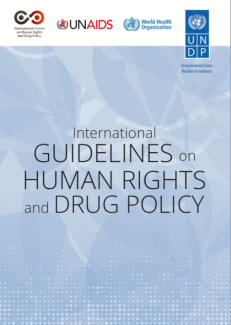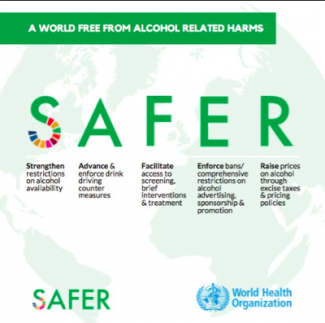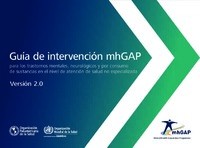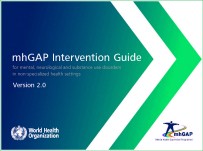Search
WHO stakeholder survey on improving access to morphine for medical use
WHO launched a survey on assessing barriers, enablers, and pirority actions for improving access to morphine for medical use.
All Civil Society Organisation can contribute by filling out the survey before 31 August 2022.
The survey is...
Making the European Region Safer: developments in alcohol control policies, 2010–2019 (2021)
This report presents the current status of alcohol consumption, alcohol-attributable harms and the implementation of alcohol control policies in the WHO European Region, using available data from 2010, 2016 and 2019.
A detailed overview is...
COVID-19 Response: Mental Health and Psychosocial Support for Community Health Workers
This online course provides an overview of how community health workers (CHWs) can support their communities by providing appropriate mental health and psychosocial support during the COVID-19 pandemic.
In this course you will learn how...
Drug overdose: a film about life
WHO Quitting Toolkit
Toolkit for delivering the 5A’s and 5R’s brief tobacco interventions in primary care
Making the European Region Safer: Developments in Alcohol Control Policies, 2010–2019
This report presents the current status of alcohol consumption, alcohol-attributable harms and the implementation of alcohol control policies in the WHO European Region, using available data from 2010, 2016 and 2019.
A detailed overview is...
Estimating the Impact of Achieving Turkey's Non-communicable Disease Policy Targets
According to the World Health Organisation, around 20,000 deaths could have been avoided in Turkey in 2017 if the country had reached its current goals of reducing tobacco and salt consumption by 30%, and physical inactivity by 10%.
The...
WHO Guideline: Recommendations on Digital Interventions for Health System Strengthening
The key aim of this guideline is to present recommendations based on a critical evaluation of the evidence on emerging digital health interventions that are contributing to health system improvements, based on an assessment of the benefits...
How Can Telehealth Help in the Provision of Integrated Care?
The World Health Organisation defines telehealth as:
The use of telecommunications and virtual technology to deliver health care outside of traditional health-care facilities.
Well-designed telehealth schemes can improve health care...
Alcohol Use, Alcohol Dependence and Mental Health Conditions
Several key risk factors for noncommunicable diseases (NCDs) have been identified, including the harmful use of alcohol.
Half the world’s population drinks alcohol, and harmful alcohol use is the third leading cause of ill health and...
WHO Global Report on Trends in Prevalence of Tobacco Use 2000-2025
Tobacco is the only legal drug that kills many of its users when used exactly as intended by manufacturers. WHO has estimated that tobacco use (smoking and smokeless) is currently responsible for the death of about six million people across...
Resource Tool on Alcohol Taxation and Pricing Policies
Alcohol taxation and pricing policies have several public health, economic and social benefits as they have the capacity to:
- Generate tax revenue
- Reduce alcohol consumption and associated harms (covering both externalities and...
UNODC-WHO Joint Programme on Drug Dependence Treatment and Care
Both the WHO and UNODC strive to address the complex issues presented by drug use and dependence.
The vision: The effective and humane treatment for all people with drug use disorders. Nothing less than would be expected for any other...
The International Guidelines on Human Rights and Drug Policy
UNIATF: Call for Nominations for the Task Force Awards 2019
World Health Organization SAFER Alcohol Control Initiative
The WHO Global Status Report on Alcohol and Health claims that alcohol consumption contributes to more than 3 million deaths globally every year and is the seventh leading risk factor for premature death and disability.
The World Health...
Intervention guide mhGAP for mental, neurological disorders and substance use in the level of non-specialized health care. Version 2.0
Mental, neurological and substance (MNS) disorders are very common and represent a large burden of disease and disability around the world. There remains a wide gap between the capacity of health systems and resources, between what is...
mhGAP Intervention Guide - Version 2.0 for Mental, Neurological and Substance Use Disorders in Non-Specialized Health Settings
Overview
This is the second version (2016) of the mhGAP Intervention Guide (mhGAP-IG) for mental, neurological and substance use (MNS) disorders in non-specialist health settings. It is for use by doctors, nurses, other health workers as...
Share the Knowledge: ISSUP members can post in the Knowledge Share – Sign in or become a member
